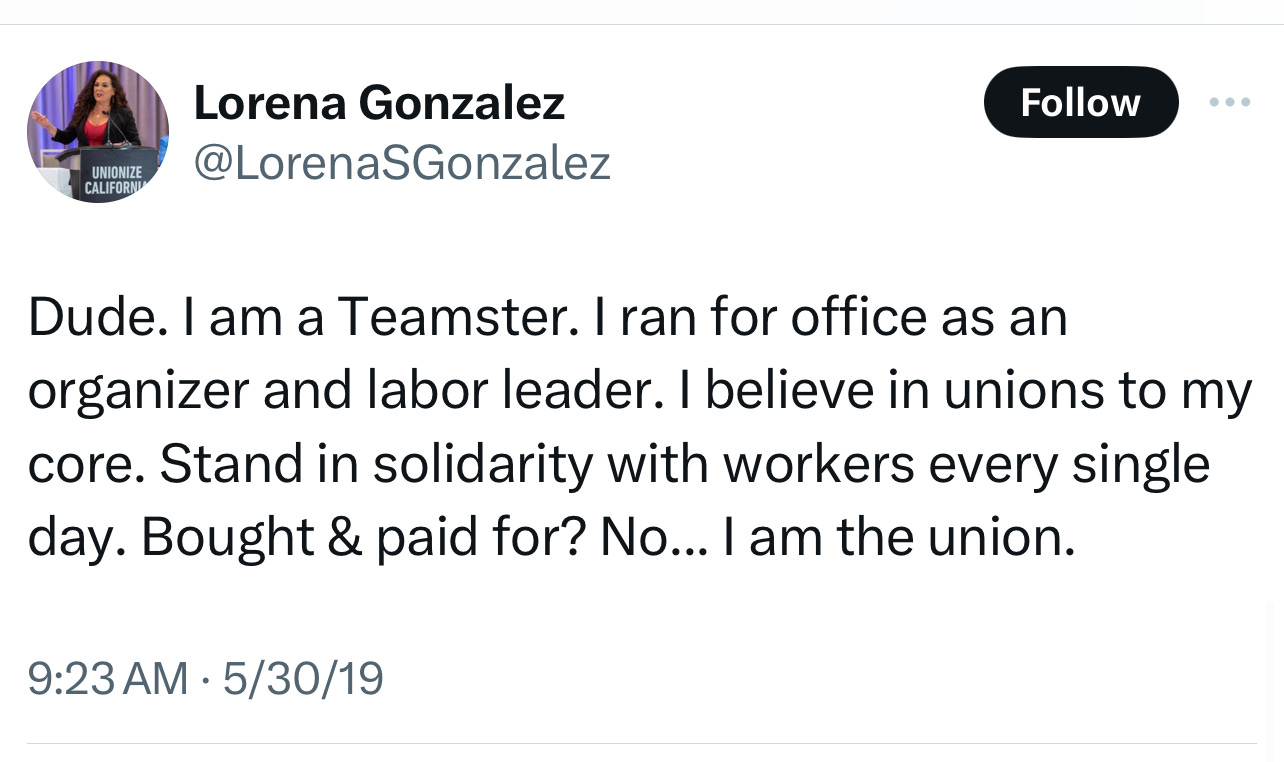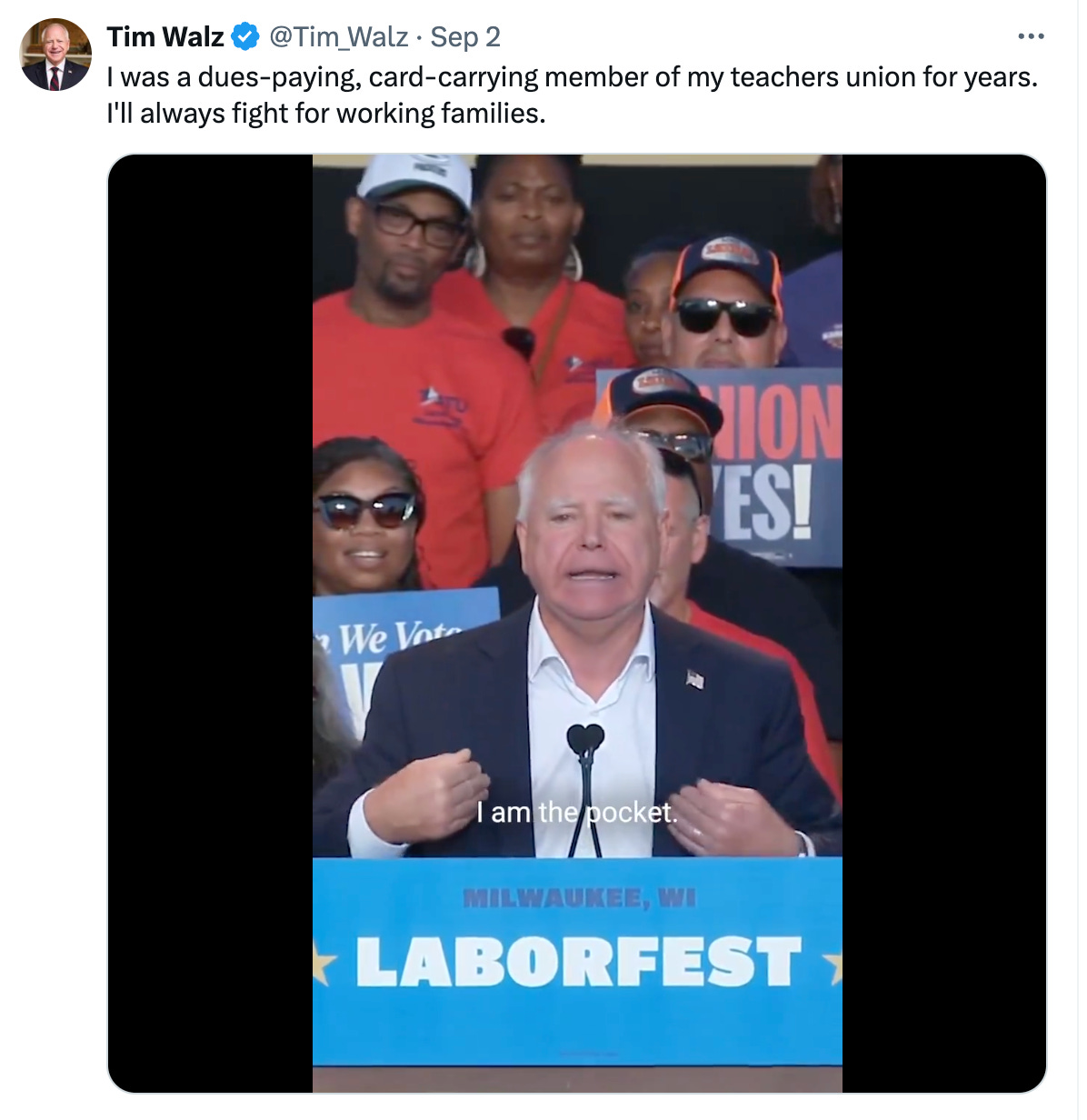Feeding the Kitty
A new U.S. Chamber of Commerce report details several emerging freelance-busting strategies. This Q&A with Glenn Spencer explains them.
Imagine being a dog with a problem.
You’re a well-behaved dog. You don’t chew the furniture or pee in the house. You always bring back the tennis ball, no matter how many times you have to fetch it.
But you have this problem. The Powers That Be have decreed that henceforth, there shall be no more treats, cookies or bones.
This is not OK with you—like, seriously, puke-on-the-bedspread not OK.
You schedule an appointment to speak with the Powers That Be, to discuss what you believe is their deeply misguided policymaking.
And you find yourself face-to-face with this:
This situation is akin to what America’s independent contractors increasingly face as we look for reasonable policymaking that protects our right to choose self-employment.
Unionists are gaining elected and appointed bureaucratic positions at all levels of government, and then using their power to push policies that ignore the wishes and wellbeing of self-employed people. They want laws and rules changed to foster widespread unionization, even if takes authoritarian means to make it happen.
Example 1: Lorena Gonzalez sponsored California’s Assembly Bill 5, a law that destroyed independent contractors’ incomes and careers after it passed in 2019. The nonpartisan state Legislative Analyst’s Office warned that this would happen, with about 1 million Californians’ livelihoods in the crosshairs.
Does Gonzalez sound like a person who cares about those independent contractors?
Example 2: Acting U.S. Labor Secretary Julie Su has the word “acting” in her title because the U.S. Senate has refused—on a bipartisan basis—to confirm her appointment. Senate Republican Leader Mitch McConnell said one reason is Su’s “radical record” of trying to give unions “veto power over fast-evolving industries where independent contractors and gig workers thrive.”
Su posted this photo on her official government X handle this month, showing Americans what she’s been doing while being paid to represent us all:
Example 3: Minnesota Governor Tim Walz, the Democratic Party’s candidate for vice president of the United States, told a story on the campaign trail this month about accusations that he’s too biased toward unions when it comes to policymaking.
“They said, ‘Tim is in the pocket of organized labor.’
“I said, ‘That’s a damn lie. I am the pocket. I am the pocket!’”
It is in this context that the U.S. Chamber of Commerce just released a report titled Cartel Bargaining, Ballot Initiatives, and Industrial Democracy: How Unions are Using Government to Circumvent the NLRA and End Labor Market Competition.
To me, the title alone sounded doggone terrifying.
Cartel bargaining? We have to fight what now to keep our freedom to be self-employed?
I reached out to Glenn Spencer, senior vice president of the U.S. Chamber of Commerce Employment Policy Division, to learn more about what’s in the report.
Here’s our conversation.
Q&A with Glenn Spencer
The new U.S. Chamber of Commerce report doesn’t mention independent contractors, but its overall theme definitely aligns with everything we have been forced to fight in recent years—wave after wave of attacks against self-employment that we call freelance busting.
This report explains that a generation ago, labor unions were private, voluntary organizations that organized workers and bargained collectively, while today, unions lobby for their agendas at city hall. Right now, our laws protect independent contractors from union organizers, so we can be in business for ourselves if that’s what we wish to do. But the unions keep trying to change laws and regulations to reclassify many of us as unionizable employees.
How do the unions justify these attacks on our freedom to choose self-employment? Their behavior goes against the will of most independent contractors and seems wholly at odds with what unions are supposed to be doing, which is representing their own members.
Unions have long sought the ability to organize independent contractors. However, the rise of the platform economy and last-mile delivery services mean that there are far more workers taking advantage of flexible working arrangements than there have been in the past. As a result, this is a much more lucrative target.
Unions like the Teamsters, in particular, have pursued government policies that will allow them to pull these workers into sectoral bargaining-like arrangements so that they can collect dues. And unfortunately with these types of arrangements, workers really have no say.
This concept of sectoral bargaining—let’s delve into that a bit.
One of the things the report covers is the National Labor Relations Act. It’s a federal law that requires unions to organize one workplace at a time, with the employees each getting a vote.
The report explains that unions think this process of organizing is too slow and expensive. They are trying to get around the NLRA by creating labor standards boards and by having lawmakers embrace the idea of sectoral bargaining.
Those are concepts most Americans have never heard of, because they are not the norm in our country. They make unions and government virtually one in the same, with the ability to impose standards on entire industries at once.
How could those kinds of shifts affect independent contractors, even if we are never reclassified as unionizable employees or given a vote in the matter?
Because sectoral arrangements don’t need to be done through the NLRA’s election process, the law never comes into play. It’s state government colluding with unions, which is why this is better referred to as cartel bargaining.
We have seen in places like New York and Massachusetts how unions are trying to sweep independent contractors into these cartel-bargaining relationships where government and unions will set the terms and conditions of employment.
So as you note, workers don’t get a vote—because there’s no election.
The report explains that with these labor standards boards, unions are given government-backed investigative powers to learn more about unorganized companies and contact those companies’ employees.
Could labor standards boards also use those powers to give union organizers the names and contact information of independent contractors who have business arrangements with the companies?
One of the things we are watching in California is whether the Fast Food Council will mandate a certain number of hours of training every year. That training will of course be conducted by unions and feature discussions about how to join. And naturally, through such a scheme, unions will have contact information for nearly every fast food worker in the state.
One could see how this would also be translated into the independent contractor world if a state does set up a cartel-bargaining arrangement.
When it comes to the labor standards boards that have already been created in the United States—the report talks about examples in Seattle, New York, Philadelphia, Colorado, Nevada, Detroit and California—have there been any instances where independent contractors are given seats on these boards, or any kind of a voice at all, to make sure we remain free to choose self-employment?
I am not aware of such an arrangement.
That said, there are worker “representatives” on the Fast Food Council in California. Of course, those individuals will be in alignment with the union or other union proxies on the council.
The vast majority of fast food workers in the state are unlikely to know there even is a Fast Food Council, let alone what it is doing allegedly on their behalf.
The report explains how the unions see the National Labor Relations Act as a barrier that they need to overcome, so they can organize more than one company at a time. However, while they are calling for that shift, these same unions are also insisting that Congress pass the Protecting the Right to Organize Act, which would reclassify many legitimate independent contractors as unionizable employees for purposes of the NLRA.
That means the unions want independent contractors to fall under the NLRA, even as they try to expand their power beyond what the NLRA allows.
Is this strategy akin to having a plan and a backup plan? If they can’t get at us one way, they will get at us another way?
Plan A is the PRO Act. That is the unions’ top priority, even if unions like the Teamsters don’t find every part of the PRO Act necessary.
But since that legislation has been hung up in Congress, cartel bargaining, preferably to cover independent contractors, is plan B.
Unions are a business, and dues are the income for that business. So like any other business, they will pursue revenue opportunities using multiple strategies.
Another thing the report covers is abuse of the proxy process. This happens when a company has a shareholders’ meeting, and the unions buy up enough shares to impose their agenda on the company.
Through that process, would it be possible for unions to force companies to stop working with independent contractors altogether?
Unions have pursued shareholder resolutions asking for a “free and fair election process,” meaning card check and neutrality. They have also sought to pass resolutions demanding audits of a company’s labor practices.
It’s not hard to see how a future resolution could explicitly try to prohibit companies from using independent contractors.
Unfortunately, the Securities and Exchange Commission has made it very difficult for companies to exclude these types of proposals, which have nothing to do with promoting shareholder value and everything to do with promoting the unions’ agenda.
Having now dealt with California’s Assembly Bill 5, New Jersey’s Senate Bill 4204, the federal PRO Act, regulatory-agency rulemaking, and the state and federal courts, we have learned a lot about how to fight for our freedom to choose self-employment as independent contractors.
What do you suggest as effective ways for independent contractors to oppose additional freelance busting that may come our way via sectoral bargaining, labor standards boards or proxy battles?
State legislatures are becoming the new battleground for union issues. That is the place for grassroots to stay engaged because it can be harder for national groups to do so.
Certainly, if Democrats take Congress, the PRO Act becomes a bigger issue, but we see state legislatures acting on these types of issues right now.







